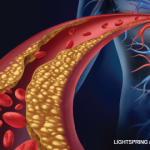 In February, the U.S. Food & Drug Administration (FDA) approved two pain medications for arthritis patients: a meloxicam injection and over-the-counter diclofenac sodium topical gel 1%.
In February, the U.S. Food & Drug Administration (FDA) approved two pain medications for arthritis patients: a meloxicam injection and over-the-counter diclofenac sodium topical gel 1%.
FDA Approves Meloxicam Injection
On Feb 20, the FDA approved a meloxicam injection (Anjeso) for treating moderate to severe pain, both alone or in combination with other NSAIDs.1 Meloxicam is a long-acting, preferential COX-2 inhibitor with analgesic, anti-inflammatory and antipyretic effects related to its inhibition of COX-2 pathway and subsequent reduction in prostaglandin biosynthesis. It’s administered as a once daily, intravenous (IV) bolus push injection and will be the only 24-hour, IV COX-2 preferential NSAID available. The treat ment is expected to be available by late May or June.
In phase 3 clinical efficacy trials, bunionectomy surgery patients (n=201) received 30 mg meloxicam injection or placebo for up to three doses. A trial was also conducted in abdomino plasty surgery patients (n=219) for post-operative pain management. A safety study was completed in patients who had undergone major surgery (n=721), with patients receiving up to seven doses of IV meloxicam. In the trials, the most commonly reported adverse reactions were constipation, gamma-glutamyl transferase increase and anemia.
FDA Approves OTC Diclofenac Sodium Topical Gel 1%
On Feb. 14, the FDA approved changing diclofenac sodium topical gel 1% to an over-the-counter (OTC) treatment that will be called Voltaren Arthritis Pain.2 The new OTC treatment is intended for the temporary relief of joint pain due to OA, which increases with age, affecting millions of people.
In 2007, the prescription version (Voltaren gel 1%) first received FDA approval and was indicated for relieving OA-related pain in joints responsive to topical treatment, such as those in the hands, knees and feet. Diclofenac sodium topical gel 1% will no longer be available as a prescription, and the OTC version is expected to be available in spring 2020.3
Diclofenac sodium topical gel 1% does not provide immediate relief and may take up to seven days to work. Patients using the product should stop if their arthritis pain does not improve after seven days or if they need to use the product for more than 21 days. The treatment may cause a severe allergic reaction, especially in people allergic to aspirin. If an allergic reaction occurs, doctors should advise patients to stop using the product immediately and seek medical care. Liver damage may occur if this product is used longer than directed or with other products containing diclofenac.

